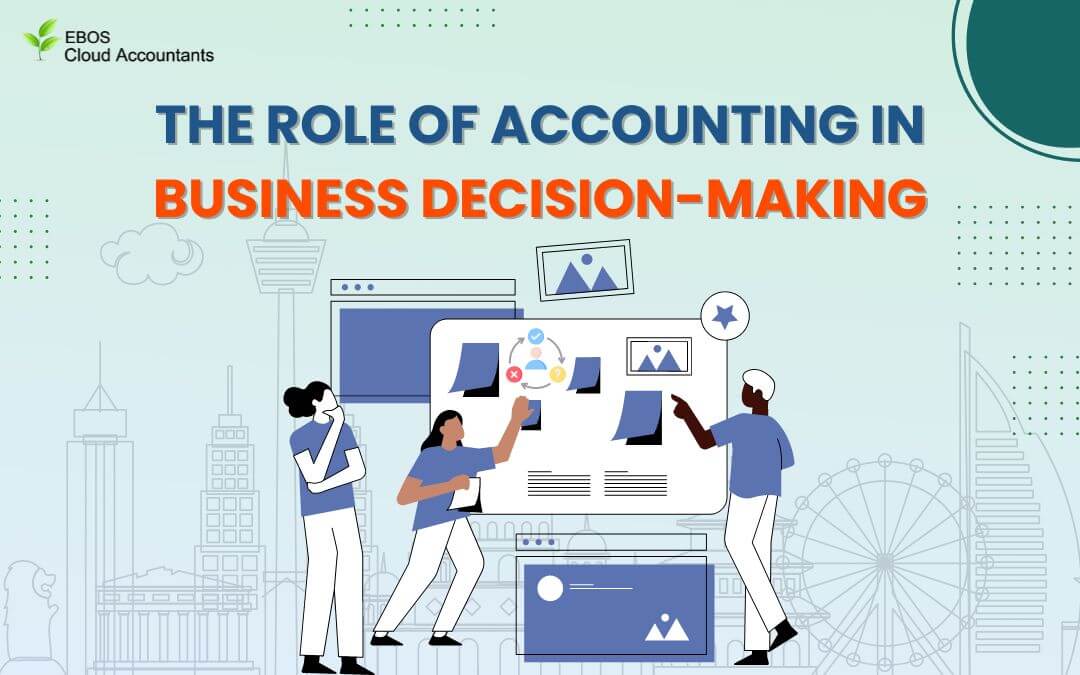Accounting provides the foundation for both financial transparency and strategic planning, making it an essential tool for company decision-making. Accounting supports company leaders in making well-informed decisions, allocating resources effectively, and guiding their companies toward sustainable growth by delivering timely and accurate financial information. This article examines the complex function of accounting in company decision-making and emphasises how important it is to many facets of organisational management.
Financial Reporting and Analysis
Accurate Financial Records
Keeping accurate financial records is one of accounting’s primary responsibilities. These documents offer a thorough picture of a company’s financial situation and contain cash flow statements, balance sheets, and income statements. Accounting helps company executives comprehend their present financial situation and make well-informed decisions about future investments, expenses, and growth prospects by ensuring that financial data is documented accurately and consistently.
Performance Measurement
Businesses can track their success over time via accounting. Companies can see trends, evaluate the success of their strategy, and make necessary adjustments by comparing their current financial data with past performance and industry benchmarks. Setting reasonable objectives, assessing development, and making data-driven decisions that increase efficiency and profitability all depend on performance assessment.
Budgeting and Forecasting
Resource Allocation
Making effective financial and forecasting decisions is essential to company decision-making. Accounting supplies the information needed to produce thorough financial projections and budgets, which direct the distribution of resources and the scheduling of expenses. Businesses can better allocate resources, prioritise projects, and prevent overextending their financial capacities by forecasting future revenues and expenses.
Risk Management
Identification and management of financial risks depend on accurate accounting data. Businesses can establish methods to manage risks and predict future obstacles like liquidity concerns or unforeseen expenses by analysing financial accounts and cash flow projections. Ensuring the long-term stability and resilience of the organisation is facilitated by proactive risk management.
Strategic Planning
Investment Decisions
When assessing potential investments, accounting is crucial. Accounting supports corporate executives in making well-informed decisions about resource allocation by offering comprehensive financial analysis, including ROI estimates and cost-benefit analyses. Accurate financial data is necessary to assess the possible risks and advantages of each decision, whether it is making capital investments, expanding the market, or developing new products.
Strategic Initiatives
Strategic planning entails establishing long-term objectives and outlining the steps required to reach them. Accounting aids in this process by providing information about how different strategic objectives will affect the bottom line. Accounting data, for instance, can be used to assess if expanding into new markets, introducing new goods, or reorganising the company is feasible. Businesses can seek development prospects while preserving financial stability by matching financial resources with strategic objectives.
Regulatory Compliance and Reporting
Adherence to Standards
One of the most important aspects of running a business is adhering to reporting requirements and financial rules. Accounting makes sure that financial statements are made using international financial reporting standards (IFRS) or generally accepted accounting principles (GAAP). Respecting these guidelines increases the legitimacy of financial reports, promotes openness, and fosters confidence among stakeholders, such as creditors, investors, and government regulators.
Audit Preparation
The preparation of accounting is also essential for audit readiness. Internal and external audits, which evaluate the integrity and correctness of a company’s financial statements, depend on accurate and well-organized financial records. Frequent audits assist find inconsistencies, stop fraud, and make sure the company stays within the law and ethical standards.
Conclusion
Accounting provides the financial information required for efficient management and strategic planning, making it an essential tool in business decision-making. Accounting helps firms make educated decisions, manage risks, and seize development opportunities. It does this by helping with budgeting, forecasting, regulatory compliance, and the maintenance of accurate financial records and performance measurements. The importance of accounting in decision-making will not change as the corporate environment does, as it is still essential to the success of organisations.
Check out our website at https://ebos-sg.com/ to explore more articles and discover how our Cloud Accountant Services can support you on your business.







